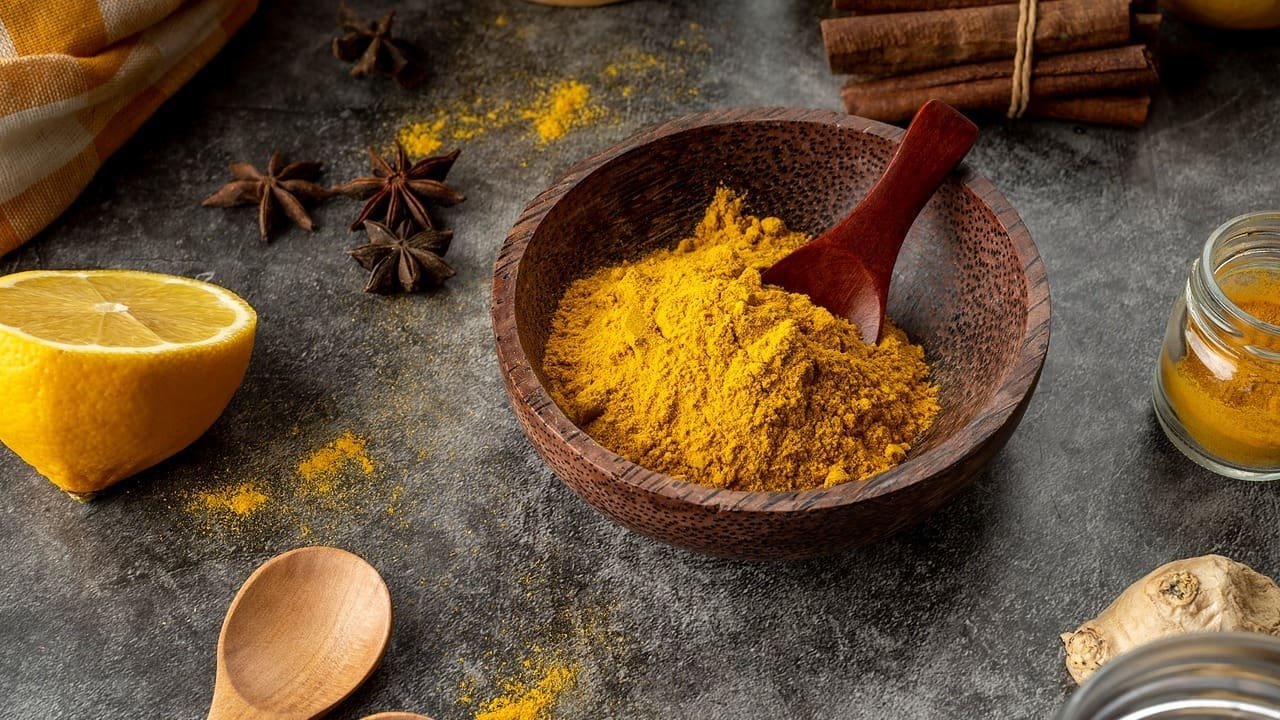Last Updated on November 27, 2025 by Bilal Hasdemir

At Liv Hospital, we’re changing how we treat autoimmune diseases. These diseases happen when our immune system attacks our own cells. This can lead to problems like rheumatoid arthritis and lupus. Holistic treatments are showing great promise in managing these issues.
Studies show that natural remedies and lifestyle changes can help a lot. For example, herbal remedies like turmeric and Boswellia are effective. Also, eating a plant-based diet can make a big difference. We’re looking into how autoimmune natural cures can improve our health.
We understand how our immune system works and how outside factors affect it. This knowledge helps us find treatments that are backed by science. At Liv Hospital, we mix medical knowledge with care and support. We want to help our patients on their health journey.
Key Takeaways
- Holistic treatments can significantly impact the management of autoimmune diseases.
- Herbal remedies and dietary changes are key parts of alternative therapies.
- Choosing a plant-based diet can help manage autoimmune conditions.
- Liv Hospital offers patient-centered care for autoimmune disease management.
- Science-backed treatments are vital for managing autoimmune diseases effectively.
Understanding Autoimmune Disease and the Holistic Approach
Autoimmune diseases are becoming more common. People are looking for new ways to treat them, beyond just medicine. Now, we’re moving towards treating the whole person – body, mind, and spirit.
What Causes Autoimmune Disorders?
Autoimmune diseases come from a mix of genetics, environment, and hormones. Studies show that changes in the immune system can lead to these diseases. This is because of a loss of immune cell diversity.
The Limitations of Conventional Treatments
Traditional treatments for autoimmune diseases mainly focus on controlling symptoms. They use drugs that suppress the immune system. But, these treatments can have serious side effects and don’t always solve the root problem. So, many patients are looking for other ways to get better.
Why Natural Approaches Are Gaining Recognition
Natural methods like changing your diet, reducing stress, and using certain supplements are becoming more popular. They can help balance the immune system and lower disease activity. These methods can be used with or instead of traditional treatments.
| Approach | Key Components | Potential Benefits |
|---|---|---|
| Dietary Changes | Elimination of trigger foods, adoption of anti-inflammatory diets | Reduced inflammation, improved gut health |
| Stress Reduction | Meditation, yoga, mindfulness practices | Lowered stress levels, improved immune function |
| Supplements | Omega-3 fatty acids, vitamin D, probiotics | Immune system modulation, reduced disease activity |
Exploring these natural methods is important. We need to look at the evidence and how they fit into a complete treatment plan.
1. Anti-Inflammatory Herbs: Turmeric and Boswellia
Turmeric and Boswellia are key in fighting autoimmune diseases. They have strong anti-inflammatory powers. For centuries, people have used them in traditional medicine. Now, science backs their use in treating autoimmune conditions.
How Curcumin Modulates Immune Response
Turmeric, a spice in Indian food, has curcumin. This compound fights inflammation and is an antioxidant. It works by stopping pro-inflammatory cytokines and enzymes, which lowers inflammation.
We can use turmeric or curcumin supplements to get its benefits. Studies show curcumin is as good as some drugs but without side effects. It blocks NF-κB, a key player in inflammation.
Boswellia’s Ancient Healing Properties
Boswellia, or frankincense, is another anti-inflammatory herb. Its resin has boswellic acids that stop pro-inflammatory mediators. It’s used for its anti-inflammatory and pain relief, helping with autoimmune diseases.
Research shows Boswellia reduces inflammation and improves symptoms in chronic diseases. It works by stopping 5-lipoxygenase, an enzyme that makes pro-inflammatory leukotrienes.
Proper Dosage and Administration Methods
The right dosage and how you take turmeric and Boswellia matters. For turmeric, take 500 to 2,000 mg of curcumin extract daily. Choose a supplement with bioavailable curcumin, often with piperine for better absorption.
For Boswellia, take 300 to 400 mg of extract with 40-60% boswellic acids, three times a day. Always talk to a healthcare provider before starting any new supplement, even more so if you have health issues or take medications.
| Herb | Active Compound | Dosage | Benefits |
|---|---|---|---|
| Turmeric | Curcumin | 500-2000 mg/day | Anti-inflammatory, Antioxidant |
| Boswellia | Boswellic Acids | 300-400 mg, 3 times/day | Anti-inflammatory, Pain relief |
For more on herbs and health, check out herbs that can help regenerate stem cells.
2. Healing Through Plant-Based Nutrition
Healing from autoimmune diseases through diet is becoming more popular. The Autoimmune Protocol Diet is a key example. It shows how plant-based nutrition can help manage these conditions.
The Autoimmune Protocol Diet (AIP)
The Autoimmune Protocol Diet is a detailed elimination diet. It removes foods that might trigger inflammation. This lets the immune system heal.
By eating foods rich in nutrients and low in inflammation, people can lessen their symptoms. This diet focuses on vegetables, fruits, lean proteins, and healthy fats.
Key components of the AIP include:
- Eliminating grains, dairy, legumes, nightshades, eggs, nuts, seeds, and processed foods
- Focusing on consumption of vegetables, fruits, lean proteins, and healthy fats
- Reintroducing foods systematically to identify trigger foods
Identifying and Eliminating Trigger Foods
Trigger foods differ for everyone, but common ones are gluten, dairy, and processed foods. Finding out what triggers your symptoms is key to managing them.
| Trigger Food | Potential Symptoms |
|---|---|
| Gluten | Digestive issues, fatigue, joint pain |
| Dairy | Bloating, skin rashes, respiratory problems |
| Processed Foods | Inflammation, weight gain, mood swings |
Research Supporting Dietary Interventions
Studies show that diet can greatly help manage autoimmune diseases. A study in a top medical journal found that the Autoimmune Protocol Diet greatly reduced symptoms and improved life quality.
“Dietary interventions, such as the Autoimmune Protocol Diet, offer a promising approach to managing autoimmune diseases by reducing inflammation and promoting immune balance.”
By choosing plant-based nutrition and avoiding trigger foods, people can actively work towards healing from autoimmune diseases. Always talk to a healthcare professional before making big changes to your diet.
3. Essential Supplements for Immune Regulation
Managing autoimmune diseases can be helped by certain supplements. These supplements can adjust the immune system’s response. They also reduce inflammation and help with symptoms.
Vitamin D: The Crucial Immune Modulator
Vitamin D is key for immune control. Studies show many with autoimmune diseases lack vitamin D. It’s important to get enough vitamin D. Talk to a doctor to find the right dose for you.
Polyphenols and Their Anti-Inflammatory Effects
Polyphenols are antioxidants found in foods and supplements. They fight inflammation, which helps those with autoimmune diseases. Foods like green tea, berries, and spices are good sources. Adding them to your diet or supplements can help.
Omega-3 Fatty Acids for Reducing Disease Activity
Omega-3 fatty acids in fish oil supplements lower inflammation. They also help with heart health and immune regulation. Choose high-quality omega-3 supplements for the best results.
Adding essential supplements like vitamin D, polyphenols, and omega-3 fatty acids to your treatment plan can help. Always talk to a healthcare professional before starting any new supplements.
- Vitamin D helps modulate the immune response.
- Polyphenols exert anti-inflammatory effects.
- Omega-3 fatty acids reduce disease activity in autoimmune conditions.
4. Traditional Eastern Practices for Autoimmune Support
For centuries, Eastern cultures have used traditional practices to improve health and reduce autoimmune symptoms. These methods help manage autoimmune diseases by focusing on balance and natural healing.
Acupuncture: Evidence-Based Benefits
Acupuncture is a key part of traditional Chinese medicine. Studies show it can help regulate the immune system and reduce inflammation. It also helps alleviate symptoms of autoimmune diseases.
Evidence-based benefits of acupuncture include:
- Modulation of the immune response
- Reduction of inflammatory markers
- Improvement in symptoms and quality of life
Traditional Chinese Medicine Approaches
Traditional Chinese medicine (TCM) is a holistic approach to health. It includes herbal medicine, acupuncture, and other therapies to promote healing. TCM practitioners diagnose and treat autoimmune conditions by identifying patterns and applying tailored interventions.
| TCM Approach | Description | Potential Benefits |
|---|---|---|
| Herbal Medicine | Use of specific herbs and formulas to address immune dysregulation | Anti-inflammatory effects, immune modulation |
| Acupuncture | Stimulation of specific points to regulate immune function | Improved immune response, reduced symptoms |
| Dietary Therapy | Personalized dietary recommendations based on TCM principles | Enhanced digestion, reduced inflammation |
Ayurvedic Treatments for Immune Balance
Ayurvedic medicine, from India, offers a system for managing autoimmune diseases. It includes lifestyle changes, dietary adjustments, and herbal remedies. Ayurvedic practitioners aim to restore balance and address underlying factors.
Ayurvedic treatments may include:
- Herbal formulations to support immune function
- Dietary recommendations tailored to the individual’s constitution
- Stress management techniques such as yoga and meditation
By adding these traditional Eastern practices to a treatment plan, people with autoimmune diseases may see better symptom management and overall well-being.
Natural Ways to Cure Autoimmune Disease Through Mind-Body Therapies
Mind-body therapies are key in managing autoimmune diseases. They offer a holistic way to heal. These therapies work alongside traditional treatments for better care.
5. Stress Reduction Techniques
Stress makes autoimmune conditions worse. So, reducing stress is essential. Deep breathing, progressive muscle relaxation, and yoga help lower stress and boost well-being.
- Deep Breathing Exercises: Simple yet effective in reducing immediate stress.
- Progressive Muscle Relaxation: Helps in releasing physical tension.
- Yoga: Combines physical movement with deep breathing for holistic relaxation.
6. Meditation and Mindfulness Practices
Meditation and mindfulness are powerful tools against autoimmune diseases. They reduce inflammation, improve mental health, and boost the body’s healing.
Mindfulness-Based Stress Reduction (MBSR) is a top program. It mixes mindfulness with stress reduction. Studies show MBSR can greatly improve symptoms and life quality for those with autoimmune diseases.
The Science Behind the Mind-Body Connection
Research shows the mind-body connection is real. Psychological factors can greatly affect the immune system. Mind-body therapies help reduce disease activity and improve health.
Adding mind-body therapies to treatment plans helps autoimmune disease patients. It unlocks the body’s healing power, leading to better health and life quality.
7-8. Lifestyle Modifications That Support Immune Health
Making certain lifestyle changes can greatly improve our immune health. By choosing wisely in our daily habits, we can actively support our immune system.
Quality Sleep and Its Impact on Autoimmunity
Good sleep is key for a healthy immune system. Studies show that poor sleep can worsen autoimmune diseases. Getting 7-9 hours of sleep per night helps our immune system work well. “Sleep is vital for health, and ignoring it can harm our immune system,” says a top immunologist.
To sleep better, stick to a regular sleep schedule. Create a calming bedtime routine and make your sleep area comfortable.
Regular Exercise: Finding the Right Balance
Regular exercise is also important for immune health. But, it’s important to find the right balance to avoid overdoing it. This can trigger autoimmune flares. Gentle activities like yoga, tai chi, or brisk walking are good for those with autoimmune diseases.
Toxin Reduction in Your Environment
Reducing toxins in our environment is also key for immune health. Toxins include heavy metals, pesticides, and harmful chemicals in cleaning products. To cut down on toxins, use non-toxic cleaning products, filter your water, and choose organic food when you can. Being aware of our surroundings and making smart choices can greatly reduce toxins and support our immune system.
By adding these lifestyle changes to our daily routine, we can manage autoimmune diseases better. This holistic approach supports our immune health overall.
9-10. Herbs to Use and Avoid with Autoimmune Conditions
Managing autoimmune diseases needs a careful look at herbal remedies. Some herbs can help, while others might make symptoms worse. It’s key to know how herbal supplements can affect autoimmune conditions.
Beneficial Herbs Beyond Turmeric and Boswellia
There are more than just turmeric and Boswellia that can help. Ginger has anti-inflammatory effects that can lessen pain and swelling. Ashwagandha may also help balance the immune system and lower stress.
Immune-Stimulating Herbs That May Cause Flares
Some herbs can boost the immune system too much, leading to flares. Be careful with Echinacea and Spirulina. They might overactivate the immune system.
The Dangers of Spirulina and Echinacea
Spirulina and Echinacea are known for boosting the immune system. But for those with autoimmune diseases, this can be harmful. These herbs might trigger or make symptoms worse. It’s important for people with autoimmune conditions to talk to their healthcare provider before using them.
Conclusion: Creating Your Personalized Natural Treatment Plan
Autoimmune disease is complex and needs a detailed treatment plan. We’ve talked about natural ways to fight it, like herbs, plant-based food, and supplements. We also looked at Eastern practices, mind-body therapies, and changing your lifestyle.
A personalized natural treatment plan can help manage autoimmune diseases and improve your life. Start by figuring out what triggers your symptoms. Then, pick the natural therapies and lifestyle changes that fit you best.
For example, you might start with diet changes, like the Autoimmune Protocol Diet (AIP). You could also take vitamin D and omega-3 fatty acids. Try stress-reducing activities like meditation and mindfulness to help your immune system.
By taking a holistic approach, you can lower inflammation and balance your immune system. This can make you feel better overall. It’s a good idea to work with a healthcare professional to make a plan that’s right for you.
FAQ
What are autoimmune diseases, and how do they occur?
Autoimmune diseases happen when the body’s immune system attacks itself. This can be due to genetics, environment, and hormones.
How can herbal remedies help in managing autoimmune diseases?
Herbs like turmeric and Boswellia can reduce inflammation. This helps control the immune response and eases symptoms.
What is the Autoimmune Protocol Diet, and how does it help?
The Autoimmune Protocol Diet removes foods that can trigger autoimmune responses. It focuses on nutrient-rich foods to heal and reduce inflammation.
Can supplements really make a difference in managing autoimmune diseases?
Yes, supplements like vitamin D and omega-3 fatty acids can help. They support the immune system, reduce inflammation, and ease symptoms.
How do traditional Eastern practices like acupuncture and Ayurveda help with autoimmune diseases?
These practices aim to balance the body and promote healing. Techniques like acupuncture and herbal medicine can complement traditional treatments.
What role do stress reduction techniques play in managing autoimmune diseases?
Stress can make symptoms worse. Meditation, mindfulness, and yoga can help reduce stress and improve well-being.
How important is sleep in managing autoimmune diseases?
Good sleep is key as it affects the immune system and inflammation. Poor sleep can worsen symptoms, so it’s important to get enough rest.
Can exercise help manage autoimmune diseases?
Yes, regular exercise can reduce inflammation and improve health. But, it’s important to avoid overdoing it.
Are there any herbs that individuals with autoimmune diseases should avoid?
Yes, herbs like Echinacea and Spirulina can worsen symptoms in some. Use them with caution.
How can I create a personalized natural treatment plan for my autoimmune disease?
Start by understanding your condition. Use natural therapies like diet changes, supplements, and stress reduction. Make lifestyle changes with a healthcare professional’s guidance.
What are some natural remedies for autoimmune disorders?
Natural remedies include anti-inflammatory herbs and the Autoimmune Protocol Diet. Supplements like vitamin D and omega-3 fatty acids are also helpful. Mind-body therapies like meditation and yoga can also help.
How can I naturally treat my autoimmune disease?
Natural treatment involves a holistic approach. This includes dietary changes, stress management, supplements, and lifestyle changes tailored to your needs.
Are there any natural cures for autoimmune diseases?
While “cure” is complex, natural approaches can manage and alleviate symptoms. This improves quality of life.
References
- NatureMed: https://naturemed.org/natural-remedies-for-autoimmune-disease/
- National Center for Biotechnology Information (NCBI) / PMC: https://pmc.ncbi.nlm.nih.gov/articles/PMC6588481/








